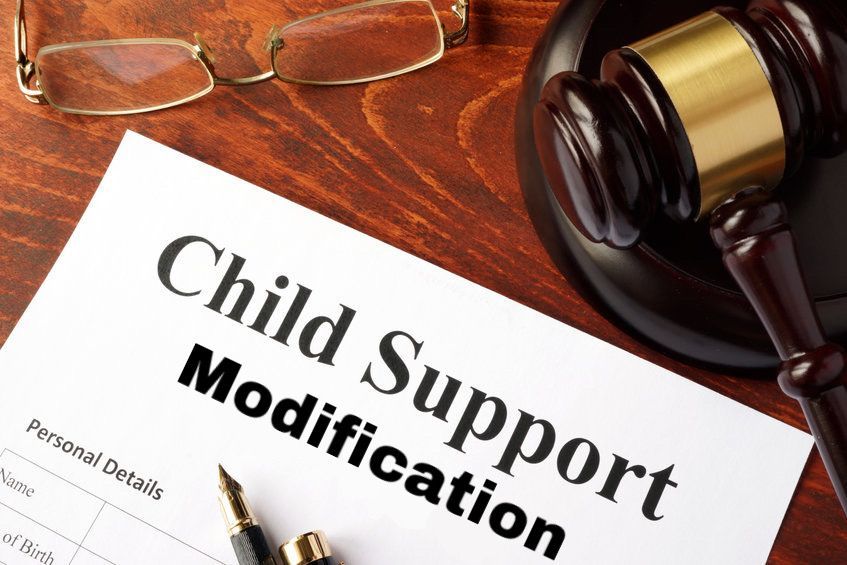How Much Does a Divorce Cost in Rhode Island
A divorce in Rhode Island can cost anywhere from $1,500 to over $30,000 per person. The final price depends on whether you and your spouse agree on everything or need to fight things out in court. Most people in Rhode Island pay around $13,200 for their divorce, with lawyer fees eating up about $10,400 of that total.
The good news? You have options. An easy, friendly split costs way less than a battle in court. This guide breaks down every cost you might face and shows you smart ways to keep more money in your pocket during this tough time.
What Makes Up The Total Cost Of A Divorce
Getting divorced isn't just one bill. It's like going to a restaurant where everything costs extra. Here's what you're actually paying for:
Court Filing Fees
Before anything happens, you need to pay the court. In Rhode Island, filing for divorce costs $160. If you file your papers online, expect to pay a bit more. Some courts charge extra fees for electronic filing.
Can't afford it? You can ask the court to waive this fee. Fill out a form called "Plaintiff/Petitioner's Motion to Proceed In Forma Pauperis." If approved, you won't pay any court costs during your divorce.
Attorney Fees
This is the big one. Lawyers in Rhode Island charge between $200 and $400 per hour for divorce cases. The average rate is around $250 per hour.
Think about it like this: if your lawyer spends 40 hours on your case at $250 per hour, that's $10,000 just in legal fees. And that's just for one person. If both spouses hire lawyers, the total doubles.
Some lawyers offer flat fees for simple cases. An uncontested divorce might cost between $1,500 and $7,500 in attorney fees. But if things get messy, you could easily spend $10,000 to $30,000 or more.
Service Of Process Fees
You need to officially tell your spouse about the divorce. This is called "serving papers." Hiring someone to deliver the documents usually costs between $50 and $100.
Mediation Costs
Many couples try mediation to avoid court battles. Private mediators charge $200 to $350 per hour. Most people spend $2,000 to $5,000 total on mediation.
Here's a cool fact: Rhode Island Family Court offers free mediation for parenting plans. But you still need a lawyer to guide you through it.
Parenting Classes
If you have kids, the court often requires you to take a parenting class. These classes cost $50 to $100 per parent. They teach you how to help your children through the divorce.
Uncontested Divorce: The Cheaper Path
An uncontested divorce means you and your spouse agree on everything. No fighting. No drama. Just paperwork.
How Much Does An Uncontested Divorce Cost
In Rhode Island, an uncontested divorce typically costs $1,500 to $5,000 per person. This includes:
- Court filing fee: $160
- Attorney flat fee: $1,500 to $2,500
- Service of process: $50 to $100
- Miscellaneous costs: $200 to $500
Some people handle uncontested divorces themselves. Online document services charge $139 to $600 to prepare your paperwork. Add the $160 filing fee, and you're looking at around $300 to $800 total.
What You Need To Agree On
For an uncontested divorce, you must agree on:
- How to split your property and debts
- Child custody and parenting time
- Child support payments
- Alimony (spousal support)
- Who keeps the house, cars, and other big items
Even one disagreement can turn your case into a contested divorce. That's when costs skyrocket.
Timeline For Uncontested Divorces
Rhode Island puts uncontested cases on a "nominal track." You'll have a hearing about 11 weeks (75 days) after filing. The judge reviews your agreement and makes sure it's fair.
But here's the catch: After the judge approves everything, there's a three-month waiting period before your divorce becomes final. You can skip this waiting period if you've been separated for two years or more.
Contested Divorce: When Things Get Expensive
A contested divorce happens when you can't agree. Maybe you're fighting over the kids. Maybe you both want the house. Whatever the reason, disagreements cost money.
Average Costs For Contested Divorces
Contested divorces in Rhode Island typically cost $15,000 to $30,000 per person. In really complicated cases, costs can exceed $50,000 per person.
Why so expensive? Your lawyer needs to:
- Gather documents and evidence
- Interview witnesses
- Attend multiple court hearings
- Prepare for trial
- Cross-examine the other side
- File motions and responses
Every hour your lawyer works, the bill grows. A contested divorce can easily require 100+ hours of attorney time.
Additional Costs In Contested Cases
Fighting in court brings extra expenses:
Guardian Ad Litem: If you're battling over custody, the court might appoint a guardian ad litem (GAL) to represent your child's interests. GALs charge $150 to $250 per hour. Most people pay $2,000 to $4,000, but complex cases can cost way more.
Custody Evaluations: Professional evaluations cost $3,000 to $10,000. A psychologist or social worker interviews everyone, visits your homes, and writes a report for the judge.
Expert Witnesses: Need to prove the value of a business? Hire a financial expert. Fighting over property? Get an appraiser. These experts charge $3,000 to $7,000 each.
Depositions: Lawyers might need to interview people under oath. Each deposition can cost hundreds or thousands of dollars in legal fees.
Understanding Rhode Island Divorce Laws
Rhode Island has specific rules that affect your costs.
Residency Requirements
Either you or your spouse must live in Rhode Island for at least one year before filing. If you don't meet this requirement, you'll have to wait. Or, if your spouse lives in Rhode Island for a year, you can file even if you don't live there.
No-Fault vs. Fault-Based Divorce
Rhode Island allows both types:
No-Fault Divorce: You claim "irreconcilable differences" or that you've been separated for three years. This is easier and cheaper because you don't have to prove anything bad happened.
Fault-Based Divorce: You blame your spouse for the marriage failing. Grounds include:
- Adultery
- Extreme cruelty
- Drug or alcohol addiction
- Desertion
- Impotence
- Any other "gross misbehavior"
Fault-based divorces cost more. You need evidence and witnesses to prove your claims. Lawyers charge extra for this work.
Equitable Distribution
Rhode Island uses "equitable distribution" to divide property. This means fair, not necessarily equal. The court looks at:
- Length of your marriage
- Each spouse's income and assets
- Who took care of the home and kids
- Each person's health and age
- How you both contributed to buying property
Complex assets like businesses, rental properties, or retirement accounts require professional valuations. This adds thousands to your costs.
Alimony And Child Support
The court can order alimony based on many factors. These include how long you were married, each spouse's income, and whether one person sacrificed their career for the family.
Child support in Rhode Island follows specific guidelines. The court uses both parents' incomes and the children's needs to calculate payments. Fighting over support amounts means more lawyer time and higher costs.
Ways To Save Money On Your Divorce
Getting divorced doesn't have to bankrupt you. Here are smart ways to cut costs:
Try Mediation First
Mediation saves thousands compared to court battles. You sit down with a neutral mediator who helps you reach agreements. Most couples who mediate spend under $3,000 total.
Even if you hire lawyers, mediation reduces their workload. Less lawyer time means smaller bills.
Consider Collaborative Divorce
In collaborative divorce, both spouses and their lawyers sign an agreement to work together. No threats of court. No fighting. Just problem-solving.
This approach costs less than litigation but more than mediation. You get legal advice while avoiding expensive court battles.
Do Some Work Yourself
You don't need a lawyer for every single task. You can:
- Gather financial documents yourself
- Make lists of your property and debts
- Fill out basic forms
- Handle simple communications with your spouse
Every task you do yourself is an hour you don't pay your lawyer.
Be Organized
Disorganized people pay higher legal fees. Why? Their lawyers waste time sorting through messy records.
Create a clear system. Label everything. Make copies. Keep a timeline of important events. Your lawyer will thank you, and your bill will be smaller.
Communicate Effectively
Answer your lawyer's questions completely the first time. Return calls and emails promptly. Come to meetings prepared.
Poor communication means your lawyer spends extra time chasing you down. That costs money.
Pick Your Battles
Not everything is worth fighting over. The couch? The old TV? Let it go. Fighting over small stuff costs more than buying new items.
Save your energy (and money) for things that really matter, like custody arrangements or retirement accounts.
Use Free Court Resources
Rhode Island Family Court offers free services:
- Mediation for parenting plans
- Forms and instructions
- Help from court staff (they can't give legal advice, but they can explain procedures)
Take advantage of these resources before spending money elsewhere.
Hidden Costs People Forget About
Divorce brings expenses beyond legal fees:
Living Expenses
Running two households costs more than one. You'll need to:
- Pay for a new place to live
- Buy duplicate furniture and household items
- Cover separate utilities and insurance
- Handle moving costs
Budget for these transition expenses early.
Financial Account Changes
You'll need to:
- Refinance the house
- Split retirement accounts (requires special court orders)
- Change bank accounts
- Update insurance policies
- Retitle vehicles
Some of these tasks require fees or professional help.
Tax Implications
Divorce changes your tax situation. You might need a tax professional to:
- Figure out filing status
- Calculate tax consequences of asset division
- Plan for alimony tax treatment
- Handle capital gains on property sales
Time Off Work
Court hearings happen during business hours. You'll miss work for:
- Court appearances
- Meetings with your lawyer
- Mediation sessions
- Property appraisals
Lost income adds up quickly.
Emotional Support
Many people need therapy during divorce. Individual or family counseling costs $100 to $200 per session. It's money well spent for your mental health, but it's still a cost to consider.
Special Situations That Increase Costs
Some divorces are more complicated than others.
Business Ownership
If you or your spouse owns a business, expect higher costs. You'll need:
- Business valuation experts
- Forensic accountants
- Tax specialists
- Extra legal work
These divorces often cost $25,000 to $50,000 or more per person.
High-Conflict Custody Battles
Fighting over kids is expensive and emotionally draining. High-conflict custody cases can require:
- Multiple guardian ad litem meetings
- Psychological evaluations
- Home studies
- Numerous court hearings
Total costs often exceed $30,000 per person.
Hidden Assets
If you suspect your spouse is hiding money or property, you'll need forensic accountants and extensive legal work. Finding hidden assets costs thousands but might be worth it if significant money is involved.
Domestic Violence Issues
Cases involving abuse require extra protections. You might need:
- Restraining orders
- Safe housing arrangements
- Additional court hearings
- Special custody evaluations
These protections are necessary but add to your costs.
Getting Legal Help You Can Afford
Don't assume you can't afford a lawyer. You have options:
Limited Scope Representation
Hire a lawyer for specific tasks only. They might:
- Review your settlement agreement
- Coach you through negotiations
- Represent you at one important hearing
- Draft complicated documents
This "unbundled" legal help costs way less than full representation.
Legal Aid Organizations
Low-income individuals might qualify for free legal help. Rhode Island has organizations that help people who can't afford lawyers.
Check if you qualify based on your income and assets.
Payment Plans
Many lawyers offer payment plans. You pay a retainer upfront, then make monthly payments. This spreads costs over time instead of requiring huge lump sums.
Pro Bono Services
Some lawyers take cases for free. They do this as community service. Ask local bar associations about pro bono programs.
Timeline And Costs: What To Expect
Understanding the timeline helps you budget.
Uncontested Divorce Timeline
- File paperwork: Day 1
- Serve spouse: Week 1
- Waiting period: 75 days
- Court hearing: Week 11
- Final waiting period: 3 months
- Divorce finalized: About 6 months total
Most costs come early. You pay filing fees, attorney fees, and service costs in the first few months.
Contested Divorce Timeline
Contested divorces take 6 months to over a year (sometimes longer). The timeline includes:
- Initial filing and responses: Months 1-2
- Discovery and evidence gathering: Months 3-6
- Mediation attempts: Months 4-8
- Pre-trial hearings: Months 6-10
- Trial: Months 8-12
- Final judgment: Month 12+
Costs accumulate throughout. Your biggest bills come during discovery, mediation, and trial preparation.
Making Smart Financial Decisions
Divorce affects your finances for years. Think long-term:
Understand Your Full Financial Picture
Before agreeing to anything, know:
- All marital assets and debts
- Expected tax consequences
- True cost of keeping the house
- Future earning potential
- Retirement account values
Agreeing to a bad deal to save money now can cost you tens of thousands later.
Get Professional Advice
Consider consulting:
- A financial planner
- An accountant
- A real estate agent
- A certified divorce financial analyst
These professionals cost money upfront but can save you much more by helping you make smart choices.
Think About Future Costs
Don't just focus on divorce costs. Consider:
- Can you really afford to keep the house?
- Is the proposed child support enough?
- Will you have money for retirement?
- What about college expenses for kids?
A cheap divorce that leaves you broke isn't a good deal.
Working With The Right Divorce Attorney
Not all lawyers are equal. Choose wisely:
What To Look For
Find an attorney who:
- Specializes in family law
- Has experience with cases like yours
- Communicates clearly
- Charges reasonable rates
- Seems trustworthy
Questions To Ask
During consultations, ask:
- What's your hourly rate?
- Do you offer flat fees for uncontested cases?
- How much should I expect to spend?
- What payment options do you offer?
- Who else will work on my case?
- How do you communicate with clients?
Red Flags To Avoid
Stay away from lawyers who:
- Promise specific outcomes
- Don't return your calls
- Aren't clear about costs
- Try to make your case more complicated
- Don't listen to your concerns
If you're going through a divorce in Rhode Island , having experienced legal guidance can make a huge difference. The right attorney helps you avoid costly mistakes while protecting your interests.
Understanding Court Costs And Procedures
Rhode Island Family Courts handle divorce cases. Here's what you need to know:
Where To File
File in the Family Court in the county where you live. If you don't live in Rhode Island, file in Providence County or where your spouse lives.
Required Documents
You'll need to file:
- Complaint for Divorce
- Verification form
- Summons
- Financial affidavits
- Property and debt statements
Missing or incorrect documents mean delays and extra costs to fix errors.
Court Appearances
Expect at least one court hearing for uncontested divorces. Contested cases require multiple appearances. Each hearing means time off work and potentially more legal fees.
Discovery Process
In contested cases, both sides exchange information through "discovery." This includes:
- Written questions (interrogatories)
- Document requests
- Depositions
- Subpoenas
Discovery is expensive but necessary to prove your case.
Child-Related Costs And Considerations
If you have kids, expect additional considerations:
Custody And Parenting Plans
Rhode Island courts focus on the child's best interests. Factors include:
- Each parent's relationship with the child
- The child's wishes (if old enough)
- Each parent's ability to provide care
- Stability of each home
- Any history of abuse
Fighting over custody increases costs significantly. Try to agree on a parenting plan that works for everyone .
Child Support
Rhode Island uses an "income shares" model. Both parents' incomes determine the amount. The court considers:
- Each parent's gross income
- Number of children
- Health insurance costs
- Childcare expenses
- Other support obligations
Child support calculations can get complex if either parent has irregular income or multiple jobs.
Health Insurance
The court will order one parent to provide health insurance for the kids if it's available at a reasonable cost. This affects your budget after divorce.
Property Division Details
Splitting assets fairly (not equally) takes work:
What Gets Divided
Marital property includes almost everything acquired during marriage:
- Your house
- Cars and vehicles
- Bank accounts
- Retirement accounts
- Investments
- Furniture and household items
- Businesses
- Debts and loans
What's Separate Property
Property you owned before marriage usually stays yours. This includes:
- Assets you had before getting married
- Inheritances (even during marriage)
- Gifts given specifically to you
- Personal injury settlements
But if you mixed separate property with marital property, things get complicated.
Retirement Accounts
Splitting retirement accounts requires special court orders called QDROs (Qualified Domestic Relations Orders). These cost $500 to $2,000 to prepare.
Don't just agree to split accounts 50/50 without understanding tax consequences. A $50,000 401(k) isn't worth the same as $50,000 in a bank account due to taxes.
Alimony Considerations
Alimony (spousal support) adds complexity to divorce costs:
When Alimony Is Awarded
Courts consider alimony when:
- One spouse earned significantly less
- One spouse sacrificed career for family
- The marriage lasted many years
- One spouse needs support to become self-sufficient
Types Of Alimony
Rhode Island allows different types:
- Temporary alimony (during divorce proceedings)
- Rehabilitative alimony (to help spouse become self-supporting)
- Permanent alimony (rare, usually in long marriages)
Calculating Alimony
No set formula exists. Courts look at:
- Length of marriage
- Each spouse's income and assets
- Age and health of both spouses
- Standard of living during marriage
- Each person's earning potential
Fighting over alimony means more legal fees and possibly expert testimony about earning capacity.
Post-Divorce Modifications
Even after divorce, costs can continue:
When You Can Modify Orders
You can ask the court to change:
- Child support amounts
- Alimony payments
- Custody arrangements
- Parenting time
But you need a "substantial change in circumstances." Examples include:
- Job loss or major income change
- Serious illness
- Remarriage
- Relocation
- Child's needs changing
Cost Of Modifications
Modification cases cost less than original divorces but still require legal help. Expect to pay $2,000 to $5,000 or more depending on complexity.
Protecting Yourself During The Process
Smart moves protect you financially:
Document Everything
Keep records of:
- All communications with your spouse
- Financial transactions
- Parenting time
- Agreements reached
- Promises made
Good documentation saves legal fees and protects you in court.
Don't Make These Mistakes
Avoid common errors:
- Hiding assets (courts punish this severely)
- Badmouthing your spouse to the kids
- Making big purchases during divorce
- Moving money around without disclosure
- Violating temporary court orders
These mistakes cost you money and hurt your case.
Protect Your Credit
During divorce:
- Monitor credit reports
- Close joint credit cards
- Open individual accounts
- Remove spouse from authorized user status
- Document all debts
Financial mistakes during divorce can haunt you for years.
When To Consider Professional Help Beyond A Lawyer
Sometimes you need more than legal advice:
Financial Advisors
A certified divorce financial analyst (CDFA) can:
- Project long-term financial outcomes
- Analyze settlement proposals
- Calculate real costs of keeping assets
- Plan post-divorce budgets
CDFAs charge hourly or flat fees but can save you thousands by preventing bad deals.
Mental Health Support
Therapy isn't just emotional support—it's a smart investment. A clear head helps you:
- Make better decisions
- Communicate effectively
- Avoid costly emotional reactions
- Focus on what really matters
Real Estate Professionals
If you own a home, get advice about:
- Current market value
- Cost to refinance
- Whether selling makes sense
- Tax implications of keeping or selling
Don't just guess about these major decisions.
Real Cost Examples
Here are realistic scenarios:
Simple Uncontested Divorce
Sarah and Mike have no kids and few assets. They agree on everything.
- Court filing fee: $160
- Service of process: $75
- Lawyer for document review: $500
- Total: $735
They split the cost 50/50. Each pays about $370.
Moderate Uncontested Divorce With Kids
Jessica and Tom have two kids and own a house. They agree on custody and property division.
- Court filing fee: $160
- Service of process: $75
- Attorney flat fee (each): $2,500
- Parenting class (each): $75
- Mediation for parenting plan: Free (court program)
- Total per person: $2,810
Contested Divorce With Custody Battle
Lisa and John fight over custody and property for 14 months.
- Court filing fee: $160
- Service of process: $75
- Attorney fees (each): $18,000
- Guardian ad litem: $3,500 (split between them)
- Custody evaluation: $5,000 (split between them)
- Financial expert: $2,000
- Mediation (required): $1,500
- Total per person: $25,000+
Complex High-Asset Divorce
Amanda and Robert own a business and rental properties. Their divorce takes 18 months.
- Court filing fee: $160
- Attorney fees (each): $35,000
- Business valuation: $15,000 (split)
- Real estate appraisals: $3,000 (split)
- Forensic accountant: $8,000 (split)
- QDRO preparation: $1,500
- Total per person: $45,000+
Final Thoughts
Divorce costs in Rhode Island vary wildly, but you have more control than you think. The biggest factor is whether you and your spouse can work together. An uncontested divorce might cost each person $1,500 to $5,000, while a nasty court battle can exceed $30,000 per person.
Smart choices save money. Try mediation first. Stay organized. Pick your battles carefully. Think long-term, not just about immediate costs. And remember, the cheapest option isn't always the best if it leaves you in a bad financial position for years to come.
If you're facing divorce in Rhode Island, don't try to figure everything out alone. Getting guidance from an experienced family law attorney helps you avoid expensive mistakes. The cost of good legal advice upfront is way less than fixing problems later.
At Inman & Tourgee , we understand how stressful and confusing divorce can be. Our Rhode Island attorneys have over 125 years of combined experience helping people through family law matters. We offer straightforward guidance and work to keep your costs reasonable while protecting your interests.
Ready to talk about your situation? Call us at (401) 823-9200 for a consultation. We'll explain your options, give you realistic cost expectations, and help you make smart choices for your future.











